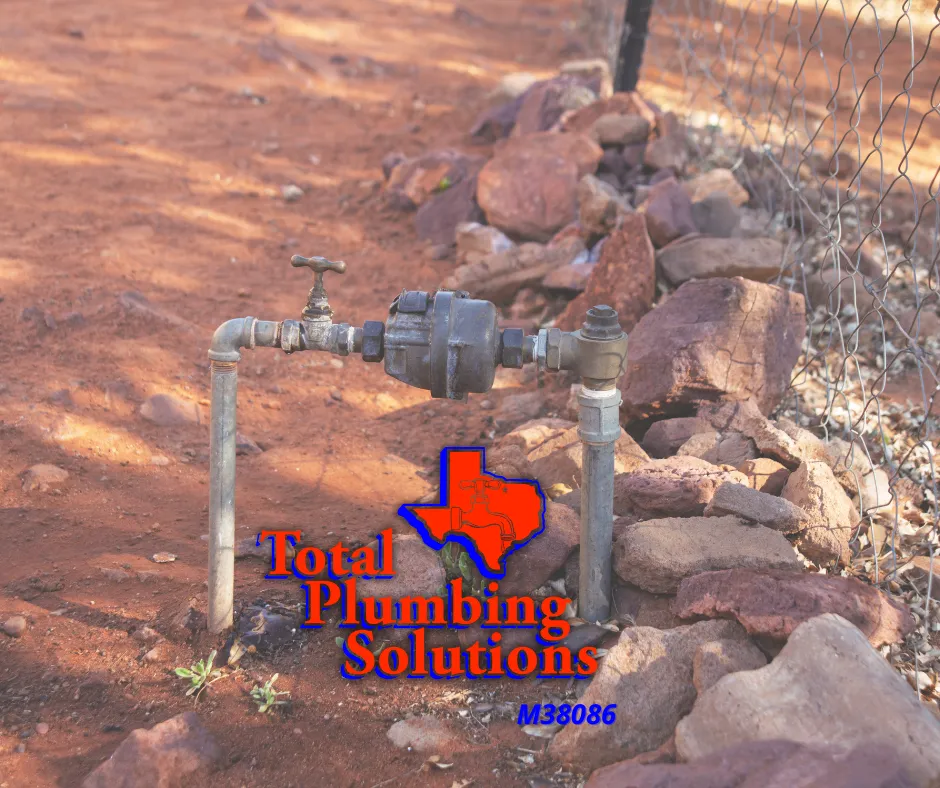
Understanding Backflow Testing: Protecting Your Water Supply
Understanding Backflow Testing: Protecting Your Water Supply
Most property owners in Decatur and across Wise County may not give much thought to their backflow prevention devices—until there's a problem or they receive a notice that testing is required. At Total Plumbing Solutions, we believe in educating our customers about these critical safety devices and the testing they require.
What Exactly Is Backflow?
Backflow is the unwanted reversal of water flow in your plumbing system. Instead of water flowing from the main supply into your property, contaminated water from your property flows backward into the public water supply.
This can happen in two primary ways:
Back-Siphonage: When pressure drops in the main water line (such as during firefighting activities or main breaks), creating a vacuum effect that pulls water backward.
Back-Pressure: When pressure in your system exceeds the pressure in the water supply line, forcing water in the reverse direction.
Either scenario can introduce harmful contaminants into the clean water supply, creating potential health hazards for you and your neighbors.
Common Backflow Hazards
In residential properties, backflow risks include:
Lawn irrigation systems
Swimming pools and spas
Water features and decorative ponds
Home water treatment systems
Auxiliary water sources (wells, rainwater collection)
For commercial properties, additional hazards include:
Commercial kitchen equipment
Medical and dental equipment
Manufacturing processes
Fire suppression systems
Cooling towers and boilers
The Critical Role of Backflow Prevention Devices
Backflow preventers are mechanical devices installed at cross-connections (points where potable and non-potable water systems meet). They allow water to flow in only one direction, preventing contamination of the clean water supply.
Common types include:
Reduced Pressure Zone (RPZ) Assemblies: Provide the highest level of protection using pressure differentials and relief valves.
Double Check Valve Assemblies: Use two spring-loaded check valves in series to prevent backflow.
Pressure Vacuum Breakers: Protect against back-siphonage but not back-pressure situations.
Atmospheric Vacuum Breakers: Simple devices that provide basic protection for low-hazard applications.
Why Annual Testing Is Required
Backflow preventers contain mechanical components that can wear, stick, or fail over time. Annual testing is mandated by most municipalities and water providers because:
Public Health Protection: Ensuring these devices work properly protects the entire community's water supply.
Regulatory Compliance: Most municipalities have adopted plumbing codes that require annual certification.
Insurance Requirements: Many insurance policies require proof of backflow testing.
Early Problem Detection: Testing can identify issues before complete failure occurs.
The Testing Process Explained
When our certified technicians test your backflow prevention device, they follow a specific protocol:
Visual Inspection: Checking for leaks, corrosion, or improper installation
Test Setup: Attaching calibrated test gauges to test ports on the device
Functionality Testing: Verifying each check valve and relief valve operates correctly
Documentation: Recording test results and providing certification paperwork
Repairs if Needed: Addressing any issues that prevent the device from functioning properly
The entire process typically takes 30-45 minutes per device for standard residential systems, slightly longer for commercial applications.
Common Testing Questions
Q: How often is testing required? A: In most areas, including Decatur and Wise County, annual testing is required. Some higher-hazard commercial installations may require semi-annual testing.
Q: Who can perform backflow testing? A: Only technicians with proper backflow testing certification can perform and certify tests. All Total Plumbing Solutions technicians who perform backflow testing are certified.
Q: What happens if my device fails? A: If your backflow preventer fails testing, repairs or replacement must be completed, followed by a retest to ensure proper functioning.
Q: Who's responsible for scheduling the test? A: Property owners are responsible for ensuring their devices are tested annually. Many customers appreciate our automatic reminder service to stay compliant.
Total Plumbing Solutions' Backflow Services
Our comprehensive backflow services include:
Testing & Certification: Professional testing that meets all local requirements
Installation: Expert installation of appropriate devices for your specific needs
Repairs: Fast, effective repairs when testing reveals problems
Replacement: Upgrade recommendations when repair isn't economical
Documentation: Proper filing of test reports with appropriate authorities
Reminder Service: Automatic notification when your next test is due
Protect Your Water Supply Today
Don't risk contamination of your water supply or non-compliance with local regulations. Contact Total Plumbing Solutions at (940) 627-4445 to schedule your backflow testing or to learn more about our comprehensive backflow prevention services.
Our certified technicians serve both residential and commercial properties throughout Decatur and surrounding Wise County areas with prompt, professional service you can trust.
